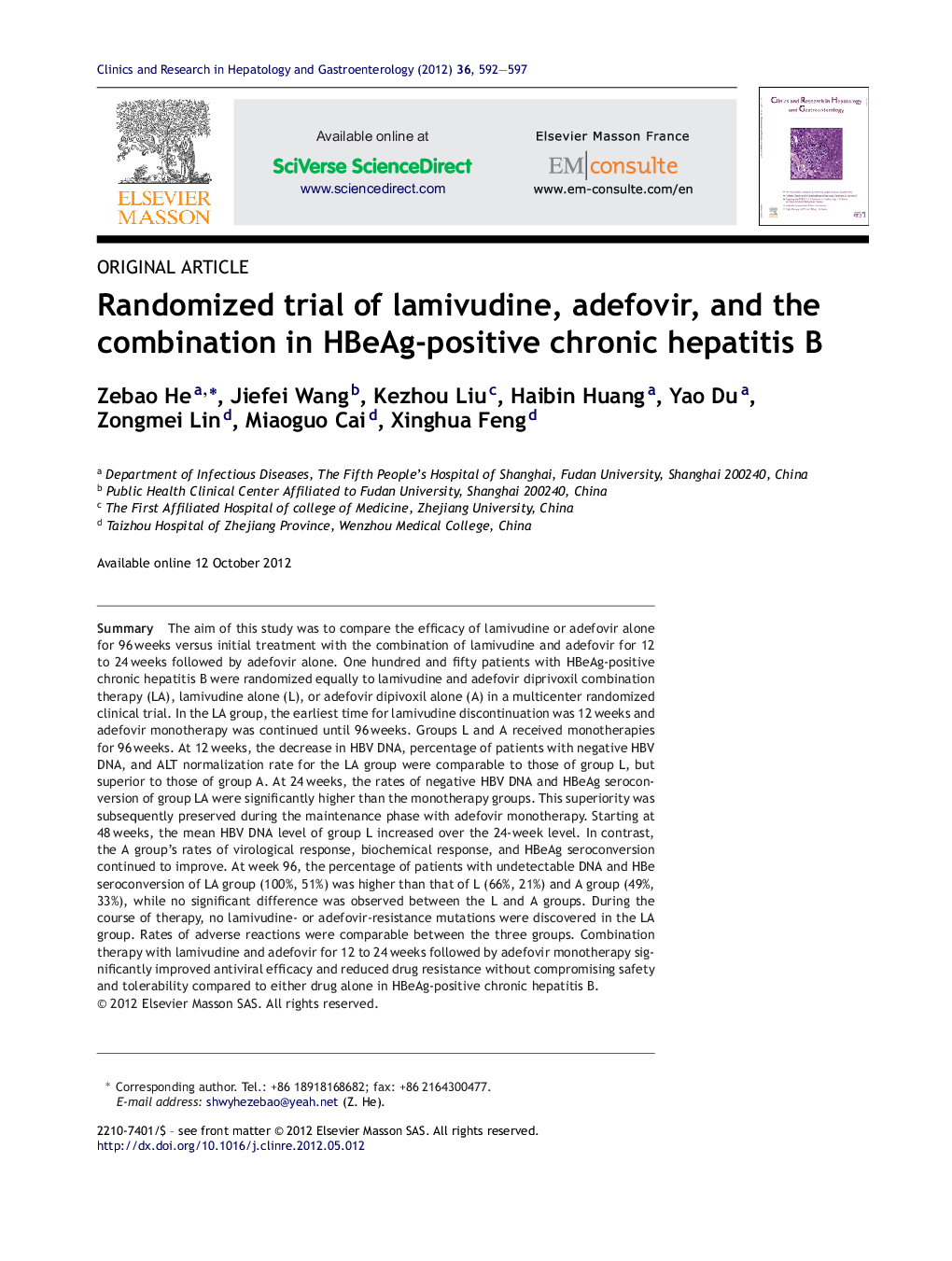| Article ID | Journal | Published Year | Pages | File Type |
|---|---|---|---|---|
| 3286820 | Clinics and Research in Hepatology and Gastroenterology | 2012 | 6 Pages |
SummaryThe aim of this study was to compare the efficacy of lamivudine or adefovir alone for 96 weeks versus initial treatment with the combination of lamivudine and adefovir for 12 to 24 weeks followed by adefovir alone. One hundred and fifty patients with HBeAg-positive chronic hepatitis B were randomized equally to lamivudine and adefovir diprivoxil combination therapy (LA), lamivudine alone (L), or adefovir dipivoxil alone (A) in a multicenter randomized clinical trial. In the LA group, the earliest time for lamivudine discontinuation was 12 weeks and adefovir monotherapy was continued until 96 weeks. Groups L and A received monotherapies for 96 weeks. At 12 weeks, the decrease in HBV DNA, percentage of patients with negative HBV DNA, and ALT normalization rate for the LA group were comparable to those of group L, but superior to those of group A. At 24 weeks, the rates of negative HBV DNA and HBeAg seroconversion of group LA were significantly higher than the monotherapy groups. This superiority was subsequently preserved during the maintenance phase with adefovir monotherapy. Starting at 48 weeks, the mean HBV DNA level of group L increased over the 24-week level. In contrast, the A group's rates of virological response, biochemical response, and HBeAg seroconversion continued to improve. At week 96, the percentage of patients with undetectable DNA and HBe seroconversion of LA group (100%, 51%) was higher than that of L (66%, 21%) and A group (49%, 33%), while no significant difference was observed between the L and A groups. During the course of therapy, no lamivudine- or adefovir-resistance mutations were discovered in the LA group. Rates of adverse reactions were comparable between the three groups. Combination therapy with lamivudine and adefovir for 12 to 24 weeks followed by adefovir monotherapy significantly improved antiviral efficacy and reduced drug resistance without compromising safety and tolerability compared to either drug alone in HBeAg-positive chronic hepatitis B.
